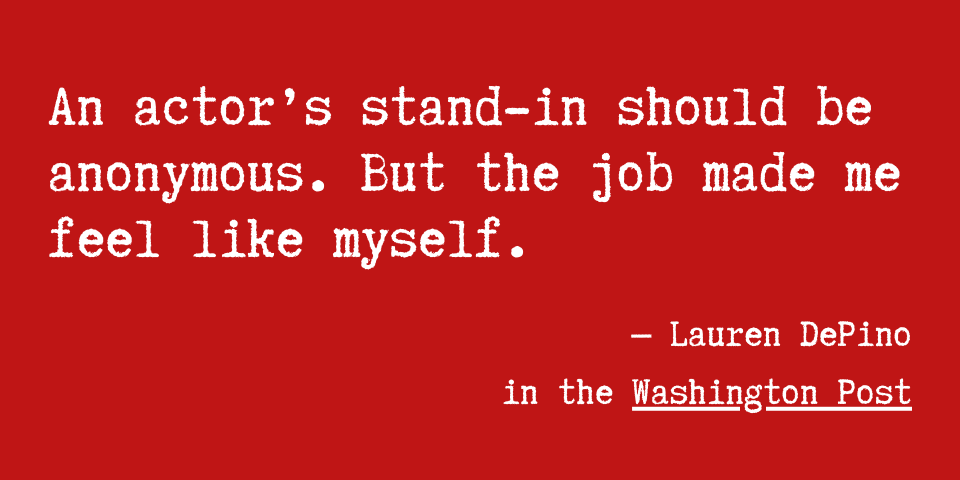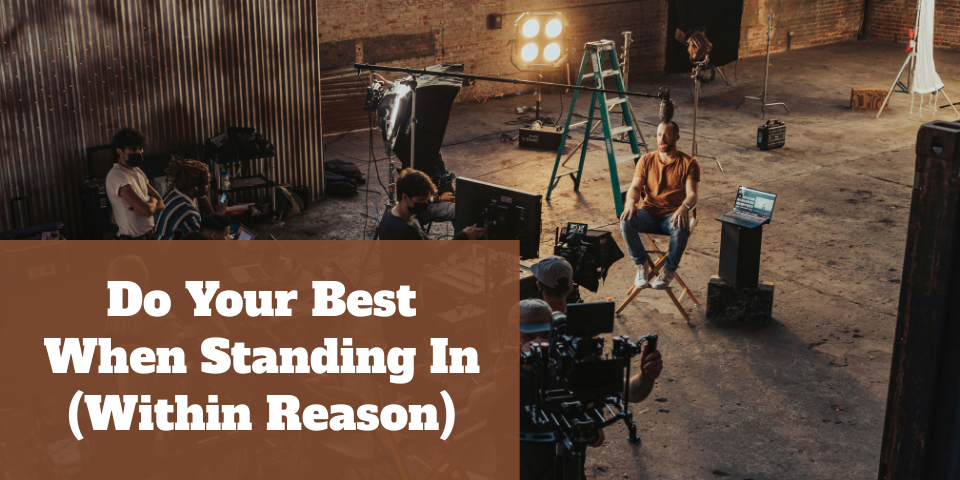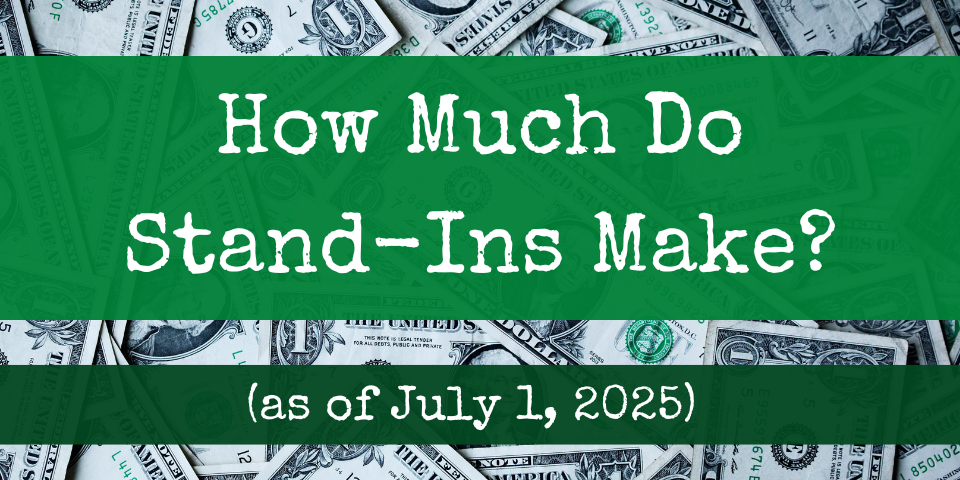The Washington Post recently published an essay by an actor and writer who also notably has worked as a stand-in. Her personal essay speaks to the value stand-in work brought her during a particularly difficult time in her life.
Published on January 3, 2020, the article, titled “An actor’s stand-in should be anonymous. But the job made me feel like myself,” is by Lauren DePino. It is subtitled “After heartbreak, standing in helped me overcome grief.”
Like many articles about working as a stand-in on TV and film productions, Lauren’s essay gives the reader an inside look into a stand-in’s job. She writes, “Every day, for 12 to 16 hours, I played a temporary proxy for a fake someone else. I sported tape across my chest that said ‘Susan,'” designating that Lauren was standing in for the character Susan. She also explains, “I did not need to cry on command as the star did, nor did I have to dredge up anger or feign joy so viewers would believe my character’s story line. […] I could coast and show no emotion.” But that did not mean Lauren could be unaware or irresponsible while working. “I had to detect when to dart out of the way […] At the same time, I had to know when to remain stationary, like a prop, while grips and electricians scurried around me,” writes Lauren.
But unlike many articles about working as a stand-in, Lauren’s essay shows the solace the work brought her after she suffered the painful passing of her grandmother and the ending of a relationship. She had coped with those traumas by miring in her misery. Lauren had become foreign to herself, having lost her identity in her relationship, and she looked for a way to escape her pain. When the opportunity presented itself, Lauren accepted a job as a stand-in on a television series as a means for coping.
Stand-in work provided Lauren a way to escape some of her destructive thinking. Lauren writes that while standing in, “I shelved my obsessive thoughts so I could stay present and still.” Stand-in work also provided Lauren with a mirror of herself. She notes, “I had to detect when to dart out of the way (which reminded me I was my own worst roadblock).” It seemed apparent that emotionally Lauren was in a fairly bleak place when she accepted the stand-in job, but stand-in work taught her that she could still accomplish things. To that point, she writes, “When my attention faded, the cinematographer noticed. ‘Look here,’ he’d prompt, holding up his palm. As a stand-in, I fulfilled my purpose — even when I didn’t think I could.”
While she apparently started the job keeping her pain private, eventually Lauren started to share with others on set, who had become sort of a family for her. One important day of standing in still stands out, when the character for whom Lauren was standing in in a scene was the recipient of applause by a newsroom. Lauren’s experience of rehearsing the scene was different from the actual, scripted scene. In Lauren’s rendition, it wasn’t characters clapping for Lauren’s character, but actors, crew members, et al., clapping for Lauren. She had finally been able to feel loved again.
Have a read of Lauren DePino’s essay in the Washington Post:
Read “An actor’s stand-in should be anonymous. But the job made me feel like myself” »
What did you think of Lauren’s story? How has stand-in work helped you during a difficult time? Share your personal experiences in the comments below!







Leave A Comment